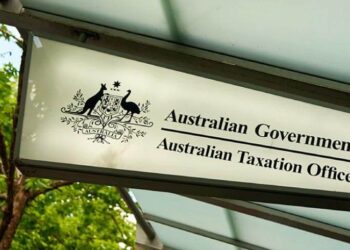ASAP Advice chief executive Jim Hennington says while a survey conducted last year with 300 SMSF accountants revealed that the proportion of accountants who are licensed could increase from 34 per cent to over 50 per cent by 31 December, there has since been a significant change in sentiment.
Mr Hennington said discussions with more than 100 accounting firms have challenged the findings from the qualitative research the firm conducted in December.
“A lot has changed in four months. Now we’re in the peak tax-planning season, the implications of licensing are really being felt,” he said.
“If you have a license, then ASIC insists you deliver SMSF tax advice through your license, whereas unlicensed accountants still enjoy the tax exemption. When accountants learn this, there is often disbelief.”
This announcement, which was made in information sheet 216, has been a “significant deterrent to accountants considering a license”, Mr Hennington said.
He said the information sheet makes it clear that for financial products that are covered by their license, any tax advice that is given to clients must be covered by the license.
“Even if the accountant has set up a separate entity for their license, we have been advised that they cannot make use of the tax advice exemption they enjoyed prior to having a license.
“Normally, this means they must conduct a client fact-find and prepare a written statement of advice, thereby losing the practical benefit of their tax advice exemptions.”
Mr Hennington has little doubt this will have a major dampening effect on licensing growth beyond current levels.
“We expect that many licensed accountants will not renew, and may indeed seek to revoke their license in order to regain the efficiency and protection offered by the remaining exemptions to the AFS licensing regime set out in Corporations Act Regulation 7.1.29,” he said.
In addition to this, accountants are also hearing about negative experiences from their peers who are licensed, ranging from bigger than expected loss of billable hours in managing the license to an inability to charge clients for a service they previously received for free.
“With disincentives to holding an AFS license continuing to mount, smaller accounting firms risk being squeezed out of the SMSF advice industry,” he said.
“The key issue is purely a commercial one. The vast majority of SMSF accountants have a handful of SMSF clients and can’t figure out how to generate a return on the large investment needed to obtain and maintain a license,”Mr Hennington said.
He said there may still be opportunities for unlicensed accountants to provide value by counselling clients on their choice of financial adviser.
“By recommending an adviser who can limit the scope of their advice to supplement, not duplicate the accountant’s service, unlicensed accountants can continue giving tax advice under the exemption and most importantly retain control of the client relationship.”



The accounting bodies have let their public practitioners members down big way. CPA had a conflict of interest as Alex Malley was setting up his pet project, CPA Advice – which so far has been a dismal failure. Apart from their members been let down, the public interest is also not served well by this whole regulatory nightmare.
The article is to some extent misleading as it does not consider that financial services is delivered in two forms:
1. Financial product advice, and
2. Dealing in a financial product or an interest in a financial product such as a SMSF
Its the “dealing” part that is not well understood and has implications for accounting firms who offer SMSF services to clients.
Super funds, whether they be in the form of retail funds, industry super funds, corporate funds or SMSFs are now treated consistently from a financial product advice and dealing perspective.
We have a comprehensive SMSF & Superannuation Advice checklist which will make it clear when an accountant crosses the line into financial product advice and dealing. Happy to make it available on request.
I would love to see a copy of the checklist, how would I get that?
Don’t forget the big accounting bodies that did not defend their members from this legislation. A spirited defence from both bodies would have stopped this legislation dead in its tracks. However, the bodies response when invited was to send some representatives that appeared to be conflicted. (ie there were accounting representatives who were already FP registered. Also they were young, inexperienced in negotiation and just accepted all that was put before them without challenge.
We were so badly let down by our representatives.
Watch what happens at the next accounting body elections. CPA members are attempting a spill, while Caanz members cant be far behind.
The best approach is to NOT give financial planning advice, just as we didn’t BEFORE 1 July 2016.
Genuine “self managed” clients won’t pay for a financial plan.
For transactions that were covered by the accountants exemption but now need an SOA, just order one from these guys online. They have the license and PI.
Just stick to tax advice and don’t give recommendations.
I dont see how these ‘guys online’ provide you with an effective outcome. If all you tell clients to do is go see the online robot then pretty soon you will have conditioned them to go see the online robot for their tax returns, audits, etc.
So disappointed. All the money and effort to become licensed, Now I just want to let it go.
My new career strategy is to reach retirement with out first going to jail.
Accountants (who went to the effort of getting their licence) are upset, clients (who are now being charged for a service they didn’t require before – SOA) are upset, who is happy about this? Accountants are being pushed to the edge.
you have to think that the sole reason for closing this ‘loophole’ in the licensing system is to cover Medcraft’s backside
Agree with all of the comments wholeheartedly. The whole accountants licencing regime has been comedy hour since 1 July 2016 – absolute farce and ASIC nowhere to be seen with regards to transitioning those effected into the new environment let alone offering any education or guidance – an insipid effort. For most practitioners this has led to “paralysis by analysis”
Where are CPA Australia and CAANZ in all this….?
I agree. We pay our membership, but have no evidence they are “going in to bat for us”.
They are sucking up to the ATO. In a recent newsletter from CAANZ re death benefits:
ATO: “In other words, death benefits are not intended to be and cannot be retained in the superannuation system and are required to be paid out to beneficiaries under the new law.”
CAANZ: “We think this is a good commonsense outcome…”
No. A good commonsense outcome would be to treat super balances as a family matter not an individual matter. Similar to Centrelink. An individual is allowed more than half of the assets of a couple and that makes sense.
No doubt they had a similar brain snap when consulting with the government on licensing.
neither tax nor super has been treated as a ‘family matter’ previously. If that is the commonsense outcome, then why don’t we add mum and dad’s income together and tax them at the standard marginal rate for an individual?
How does this compare with your article on 10 April 2017 titled ‘ASIC’s SMSF guidance spurs tax advice confusion’? As mentioned in this article, the information sheet appears to be inconsistent with the Corporations Act.
Has ASIC provided confirmation that an intended consequence of Information Sheet 216 is that tax advisers who are also authorised representatives must provide SMSF tax advice through their license?
This seems counter-intuitive and excessively cumbersome for the traditional accountant that is a registered tax agent and now an authorised representative.
Welcome to FP gents (or gals)
This licensing regime is a really BAD joke. It is truly bureaucracy gone mad.
We are a small traditional chartered accounting firm with about 100 SMSFs on our list.
Our three partners did the RG146 “qualifications”, went to the trouble and expense of becoming authorised reps of a license holder because we wanted to do the right thing from 1 July 2016, not break any laws and not try to tread the fine line between what we can, or can’t, say re super and yet still continue to provide service to our clients.
We are now wondering whether we should opt of the licensing regime and just wing it.
It is ridiculous. Just to tell a client now how much they can put into super, start a pension, commute back to fit within the $1.6m transfer balance cap etc etc, we have to issue a Statement of Advice consisting of 12 pages of templated waffle, and two paragraphs which actually answers the client’s question buried somewhere in the middle of that tome.
And we bill them for the privilege. They are not happy. Neither are we.
Is there anyone who can tell me why that’s in the client’s best interest??? It’s got me stumped.
The mandarins in Canberra responsible for this farce are suffering from a recto-cranial inversion. They really don’t live in the real world.
Agreed. Read Info Sheet 216 with total disbelief. Having spent 2 years training and the money for the extra costs only to find that any tax advice in this area has to be a statement of advice beggars belief. Unlikely to renew.